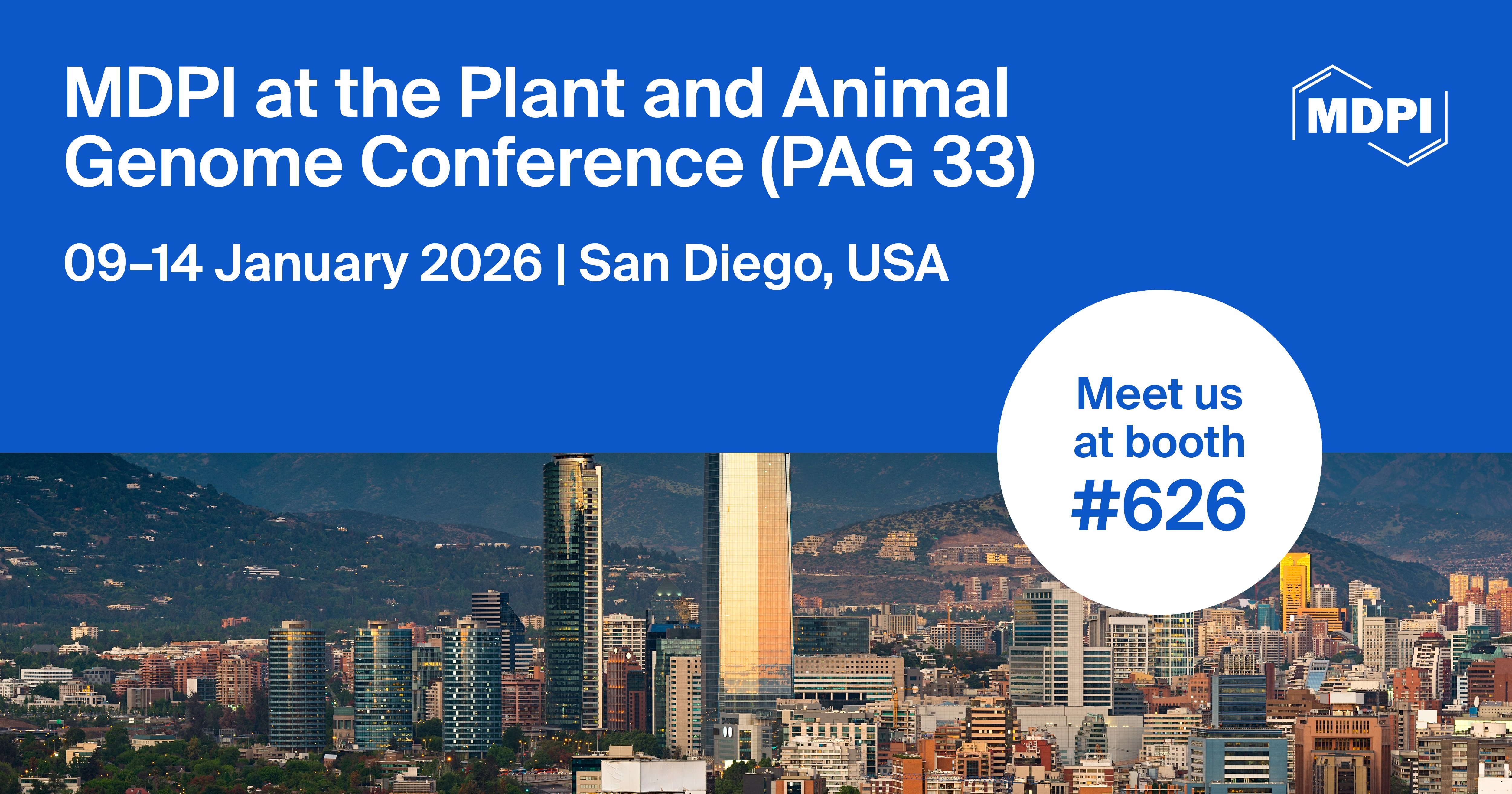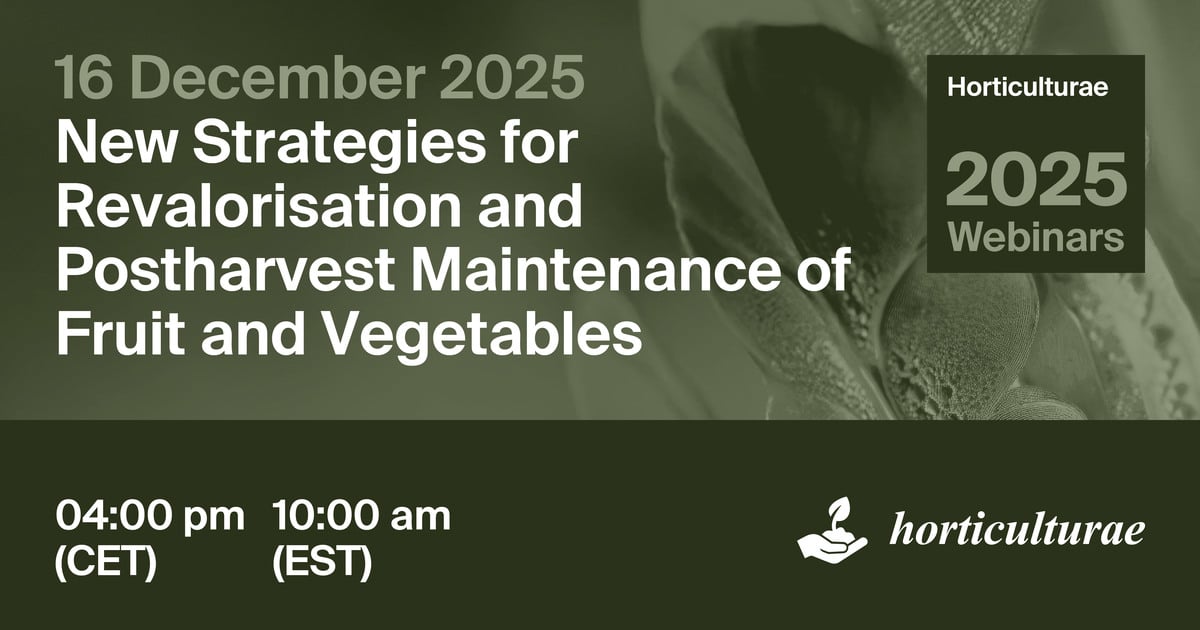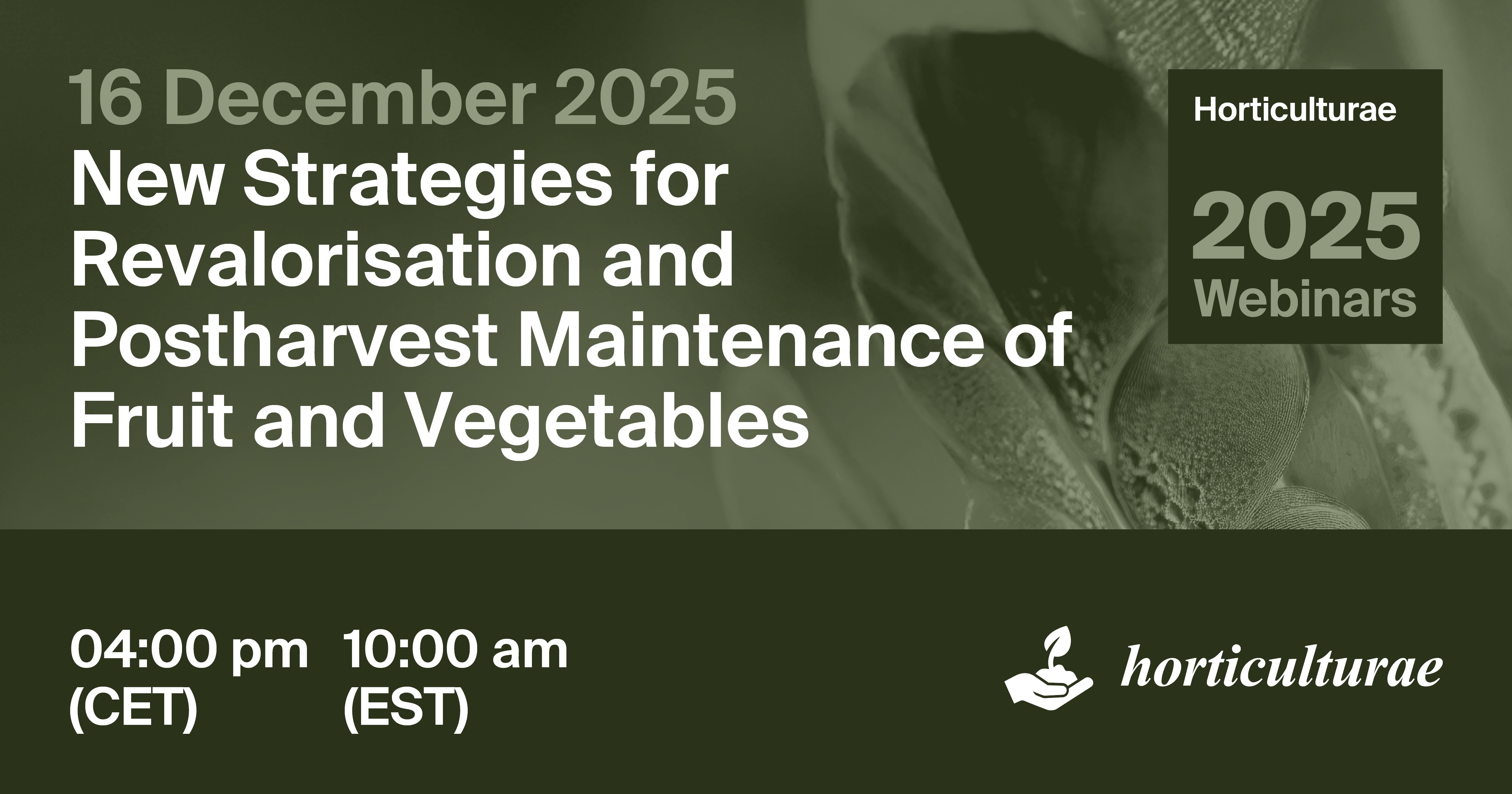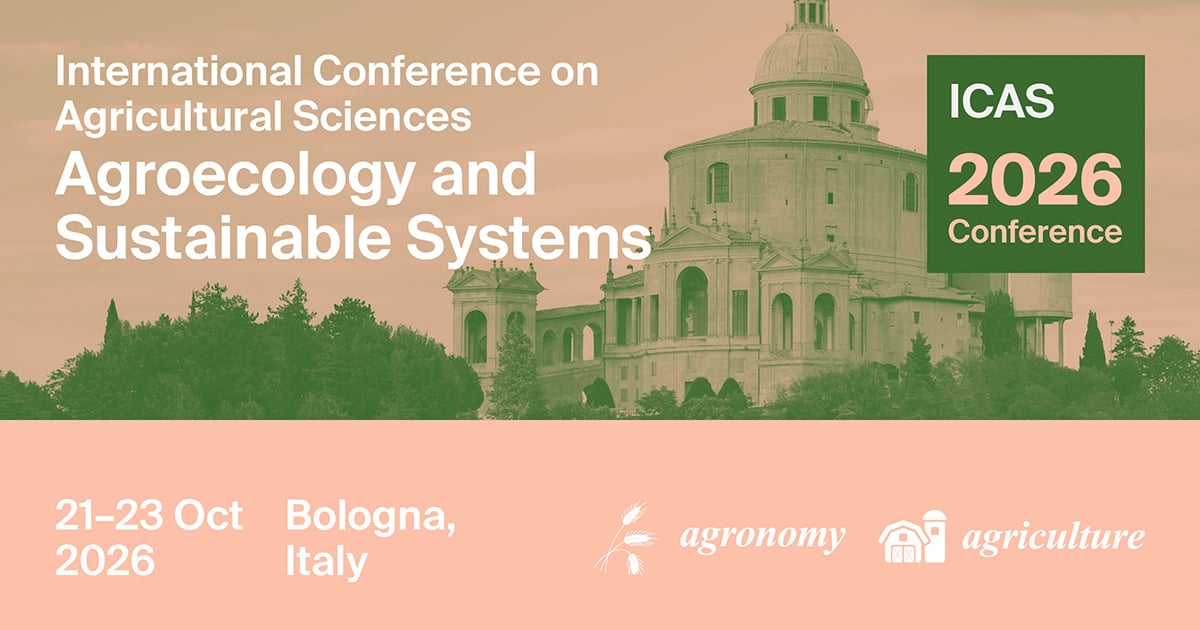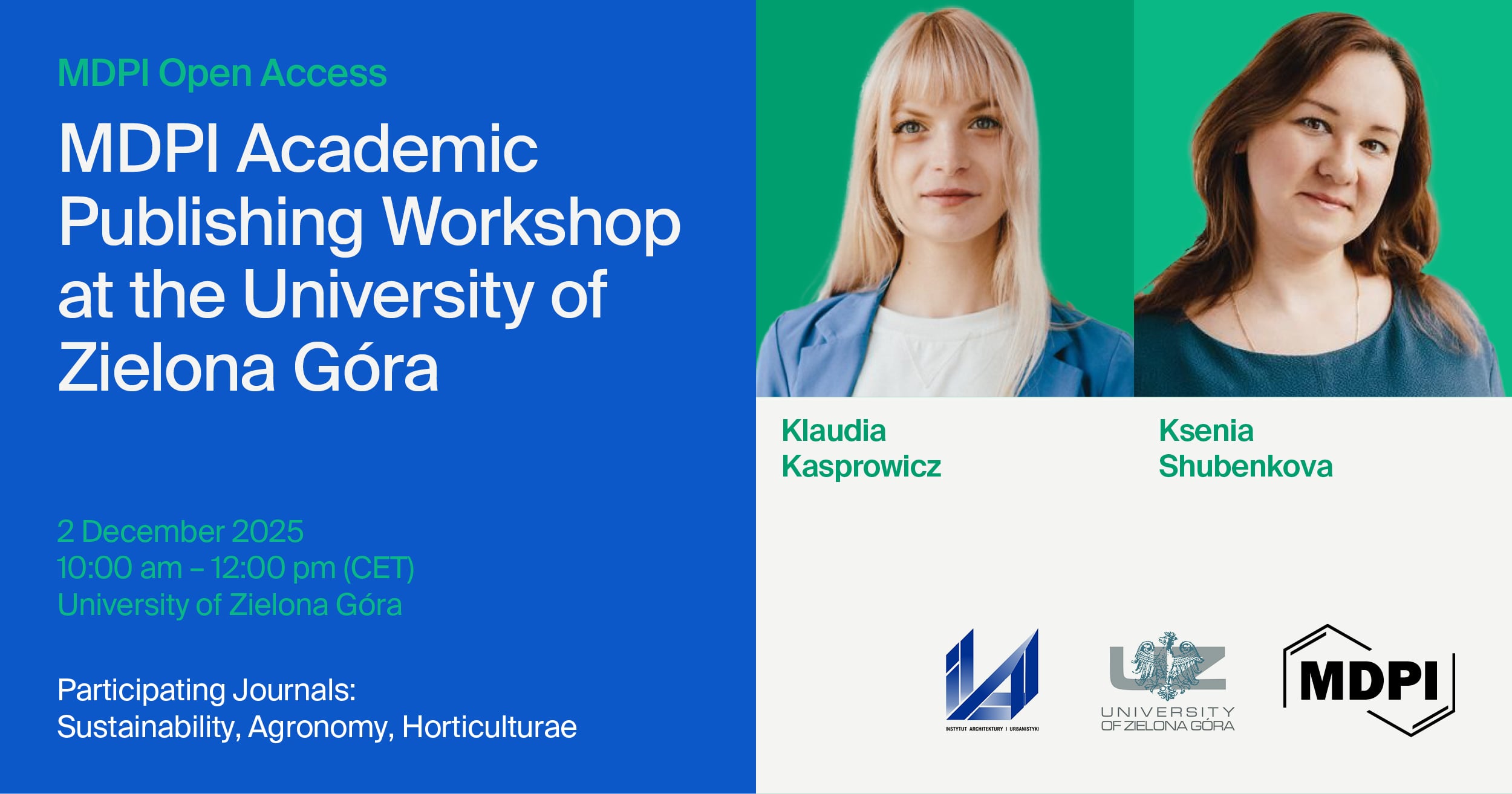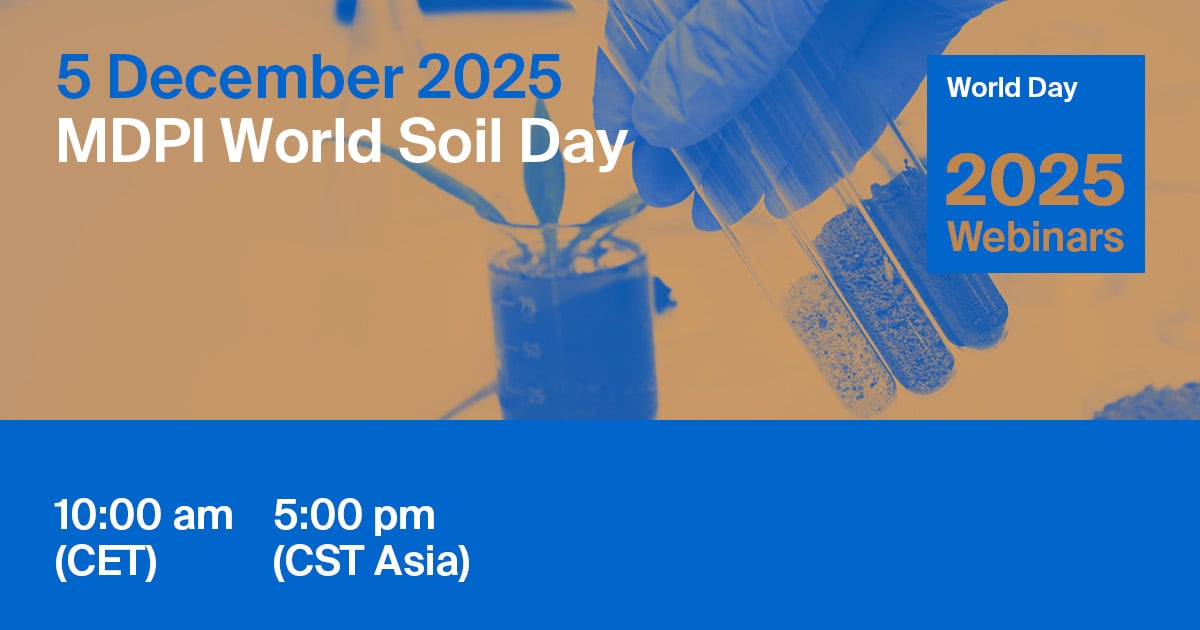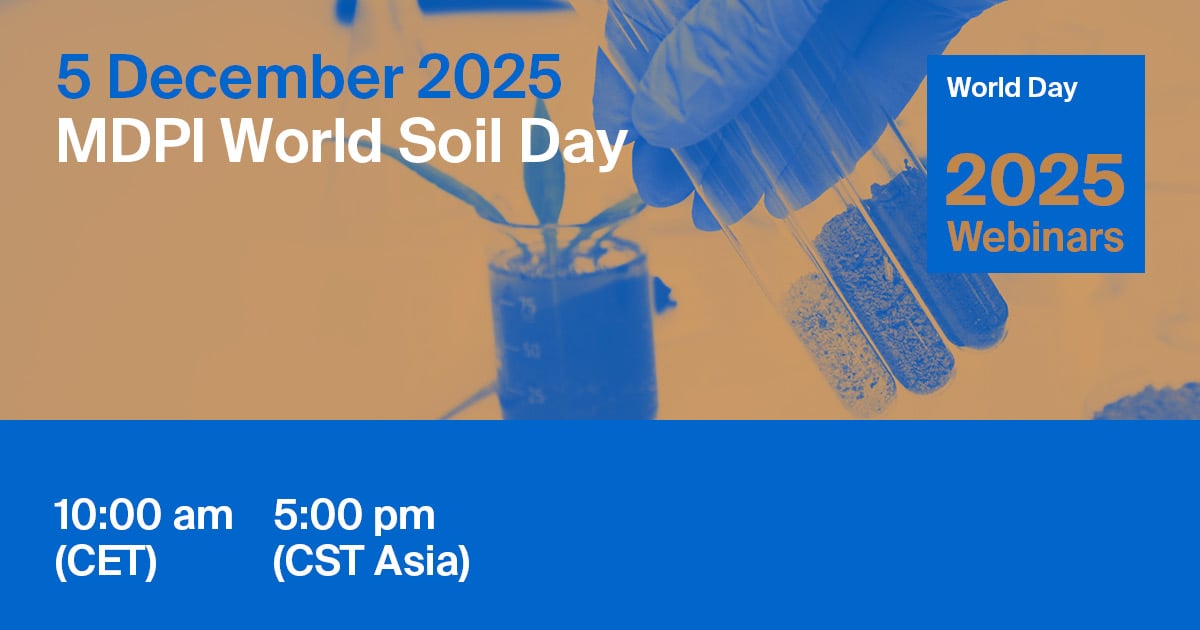- 3.0Impact Factor
- 5.1CiteScore
- 18 daysTime to First Decision
News & Conferences
Latest News & Announcements
Latest Conferences
Propose a Conference Collaboration
Promote and publicise your upcoming conference with MDPI.
All News & Conferences
News & Announcements
Horticulturae | Scope Update
24 December 2025
News & Announcements
Meet Us at the Plant & Animal Genome Conference 33 (PAG 33), 9–14 January 2026, San Diego, CA, USA
17 December 2025
MDPI Conference
Horticulturae Webinar | New Strategies for Revalorisation and Postharvest Maintenance of Fruit and Vegetables, 16 December 2025
16 - 16 December 2025
News & Announcements
Horticulturae Webinar | New Strategies for Revalorisation and Postharvest Maintenance of Fruit and Vegetables, 16 December 2025
12 December 2025
News & Announcements
Article Layout and Template Revised for Future Volumes
11 December 2025
News & Announcements
World Soil Day—“Healthy Soils for Healthy Cities”, 5 December 2025
5 December 2025
MDPI Conference
Mark your calendars!
21 - 23 October 2026
5 - 5 December 2025
News & Announcements
MDPI Webinar | World Soil Day, 5 December 2025
28 November 2025
News & Announcements
MDPI Launches the Michele Parrinello Award for Pioneering Contributions in Computational Physical Science
6 November 2025
News & Announcements
MDPI INSIGHTS: The CEO's Letter #28 - WSF11, Nobel Laureates, Proofig AI, Romania Summit, STM and FBF
4 November 2025
of 17


